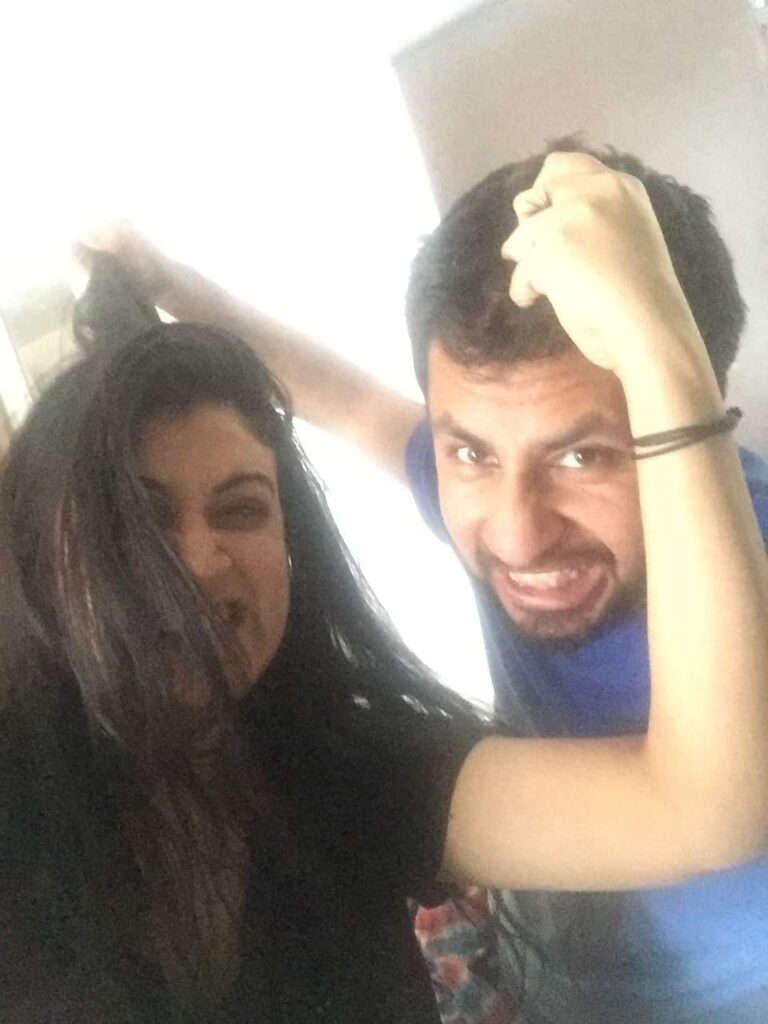“Conflicts are harmless”
There are people who are less aggressive amongst the lot but still get trapped in the most complex conflicts, and then there are the winners of every cat, dog and a whole zoo fight. From raising voices to that one person who’s always worrying on listening of the walls, there is always a good and a bad person in every relationship. As I write this I recall a memory of a newly married friend, who got into a pointing gun situation with her husband on re-arranging the shoe rack. While she knew her husband’s lack of interest in helping, the poor guy continued to give his best shots to conclude the tiff. Where on one hand she was convinced by the opinion on her husband, the guy figured out a way to escape from the situation thinking of it to be best for both. So, let’s understand what the actually cause of disagreement in any relation is. The preconceived notions attached to the word ‘Argue’ is the real problem. When people go in with the intent of proving the other person wrong, they already start off on the offensive side.
Avoiding, focusing on ending the ‘argument’, trying to keep the vocal cords to rest, making intentional attempts to crack jokes in between, is all okay but isn’t it doing some serious harm to your relationship? Am sure there are so many people who can completely resonate with what I am trying to communicate here and even more of those who would be laughing their gut out recognizing the ones.
Rather it’s best understood this way, only an avoidant personality and an anxious person is for a look to avoid confrontation, shows in most of the studies done on human behavior. In order to avoid a heated argument or just trying to fit in the good books sometimes can push a person to agree with the things he doesn’t believe in. For example, when your spouse calls you clumsy, you react with a smile and say, ‘OH, well yes I am. Even clumsier than you who doesn’t even care to put his wet towel back for drying. I am happy that I am not as clumsy as you’. So here, while putting your point sharp across; you not only made an attempt to put the other person down but also clamped down your self-belief.
Just when you thought you won the battle, you also became a target equally. Now that your partner is clumsy as per your judgment; so are you! Now, that’s called a checkmate! But, really are we opportunist warriors from some era always on a look out to take control of every situation or we are here to understand the gravity of the situation and figure a two way solution? While many of us believe that we know what’s best for our relationship, when to put guns of defamation on others; let’s make an attempt to give this whole highly rated ‘relationship complexity’ a different prospective, all together. Understand conflicts as routine. The more organized your day is the more qualitative outcome you see otherwise it’s always easy to give in primal instincts and enjoy a plethora of confusion. Like our routine, conflicts too needs a lot of miniaturization starting from setting goals to agreeing on a common outcome.
- Set a goal: Have a transparency on understanding why are we having a particular conversation and what are we looking to achieve from it.
- Be friends with boundaries: I feel all discussions should have guidelines. State that you would like to steer clear of a certain topic, tone, or treatment. This helps in maintaining personal peace and does not lead to bad blood.
- Start on a positive note: Pointing out someone’s strength will lead towards a desired direction of the conversation and will help you see the positive side of the person you are arguing with.
- Discuss on the areas you can have growth together: Instead of going loop on loop at stating what is not right about the other person, try highlighting the grey areas and then make an attempt to have a healthy conclusion.
- Pick up rational arguments instead of emotional explanations: A difference of opinion may be there because both parties don’t have access to the same set of facts, so before labeling someone as being ignorant, present the facts that back up your opinion.
- Blame the process not personality: Instead of saying, “You’re so inconsiderate,” which immediately puts the person on the defensive, say, “It upset me that you didn’t hair my oil today. Could you consider doing it tomorrow, I look forward to your head massage”.
- Listen to understand and not respond: Many of us do this repetitively, we often get so busy in proving our point across that we forget to understand the reason why the person pointed over an issue. If they are able to explain their point of view and it seems to make some sense, you’ll perhaps learn something.

Don’t threaten your relationship, regardless of how much you get mad during a heated argument; let all the drama be outside the door. Any type of emotional blackmail puts a person off and the topic of discussion takes a different direction all together. An argument does not define the fate of any relationship. Learning how to argue effectively can be constructive, and you can walk away from it having learnt something new, with a fresh perspective or maybe even having learnt how to agree to disagree.
Hope this has brought a different prospective to you all and will help you in dealing your relationships better. Until then, drop your Guns but not your Relationships.

